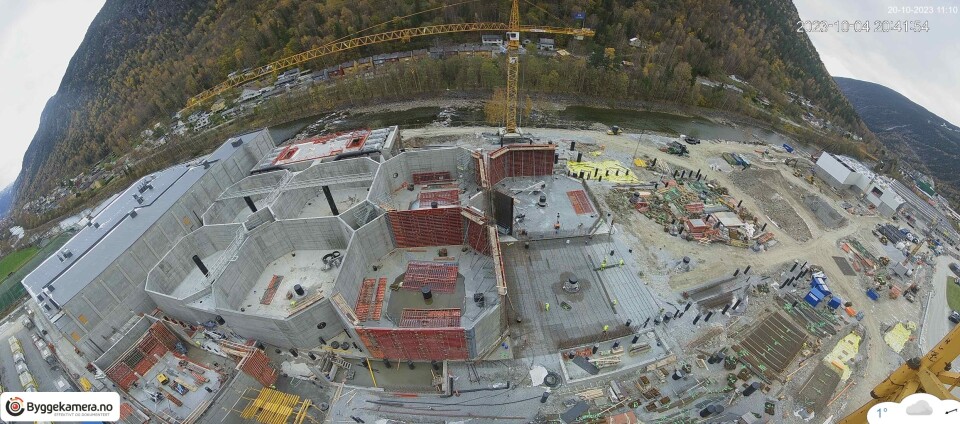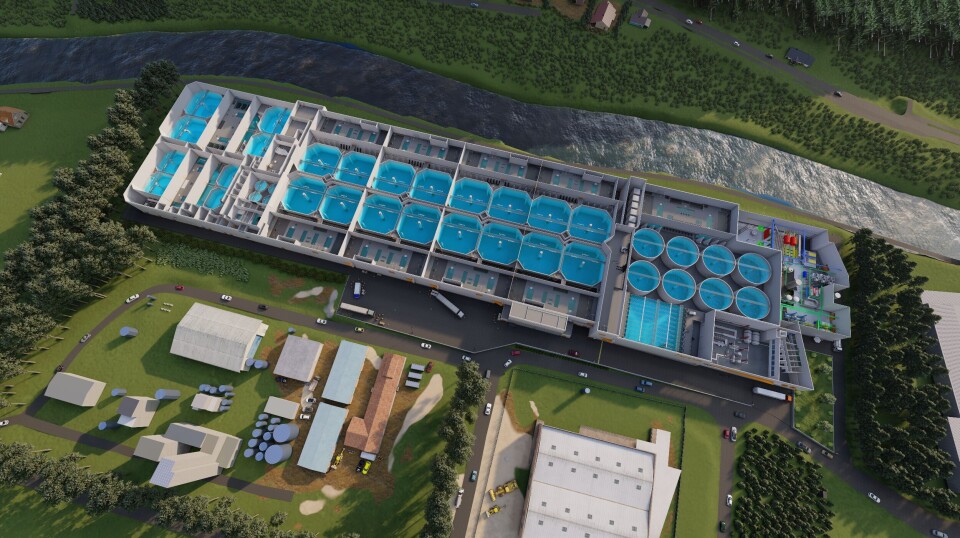
On-land trout farm will turn all sludge into fertiliser
Heat from process will also be used to warm the building, says equipment supplier Sterner
Hima Seafood, which is building the world’s largest land-based trout farm in Norway, has opted for a treatment system that will turn all the sludge produced at the recirculating aquaculture system (RAS) facility into organic fertiliser.
The system is being supplied by Sterner, a Norwegian company specialising in technology for clean water across various segments, including drinking water purification, water treatment on wellboats, wastewater treatment, and aquaculture technology.
In a RAS facility, substantial quantities of sludge are generated, which must be separated from the water circulating back to the fish. Karl Levinsen, project manager at Eyvi, the main contractor alongside Total Betong on the project, said: “We are left with the purified sludge as a byproduct from the facility, and by utilising the right technology, this byproduct will create new value.
“Traditionally, such sludge has been considered waste, but technological advancements in recent years have opened the door to a more sustainable management.”
He added that the fertiliser will not only have significant
value for Hima, “but also for promoting the circular economy and protecting our
environment”.

Daniel Persen, project manager at Sterner, said: “What truly sets this solution apart from others is the special drying method. We dry and sanitise the sludge in the same process to meet the requirements of the fertiliser product regulations.
“It should also be mentioned that the residual heat from the sludge treatment at Hima Seafood will be used to heat the building, making this an extremely energy-efficient facility.”
Hima Seafood’s RAS facility in Rjukan, in Norway’s inland Telemark region, is designed to produce 9,000 tonnes of fish annually.
Last year another sludge treatment specialist, Blue Ocean Technology, announced that it had won a NOK 30 million to supply the Rjukan project, but Sterner confirmed today that its equipment had been chosen instead.























































